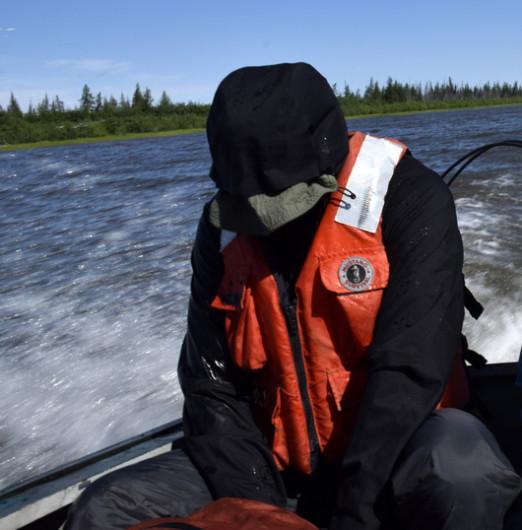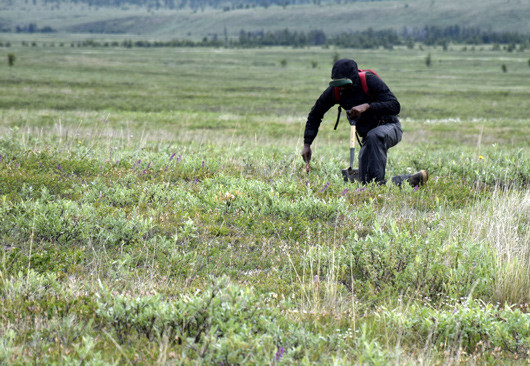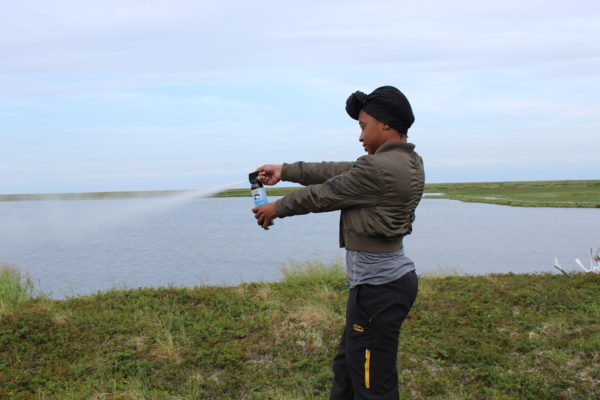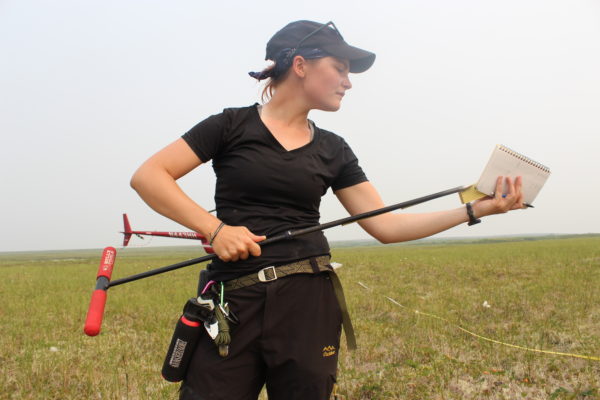The journey begins! My first flight from Denver International Airport departed at 11:23 a.m. on Saturday, June 26, 2015 and I finally arrived in Cherskiy, Russia on Tuesday, July 30, 2015 at 6:12 pm. I’ve been thinking about this great opportunity since I applied last year and was elated to find out I was accepted. I know that my experience this summer depends on how hard I work and my willingness to try new things.

Working in the lab. © John Schade
As a graduate student I’m interested in the effects of nitrogen fertilization on soil respiration. What I enjoy most about studying ecology is getting to work in the field and developing interesting questions that contribute to our scientific understanding. I’ve had the opportunity to conduct research in Rocky Mountain National Park, and now in the Siberian Arctic, studying how nitrogen fertilization impacts the release of carbon dioxide from soil respiration. It is important because it reflects the capacity of soil to support biological activity, and the impact of this activity on greenhouse gas flux. The opportunity to travel to Siberia will allow me to compare different ecosystems. I’m excited to learn new techniques and work with scientists from around the world.
On our way to visiting one of the coolest places in Siberia, Duvannyi Yar, I’m sitting in the back of the boat getting drenched with water and all I can think about is Wow! I’m in the Arctic.

A wet ride to Duvannyi Yar. © John Schade
This adventure started with all of us getting out of the boat and instantly sinking deep into the wet ground. I literally had to pull my legs out of the mud and crawl to safety because the wet soil is like quicksand. We learned about how these ancient soils store carbon as we walked along the beach, when suddenly a mammoth bone appeared near the shore. I could see the excitement in everyone’s eyes to find more. Now our goal was to find the most unique mammoth bone. This experience really showed me that there is something special about traveling to a part of the world that you’ve never seen before and discovering how much you enjoy learning about one the regions most vulnerable to climate change. Most importantly we hope to learn more about how carbon is stored and released in this environment from vegetation, permafrost and streams.

Digging the tundra. © John Schade
Our next stop is the Arctic tundra…




Comment(1)-
Marius Davis says
August 8, 2015 at 3:15 amMr Allen-
I’m very proud of you and all that you are doing! I knew from your Student Support Services days that you were a young man of great determination and scholarship! I pray many blessings upon you as you continue to excel!
Best,
Mr. Marius Davis